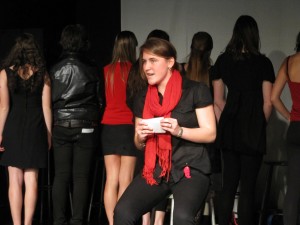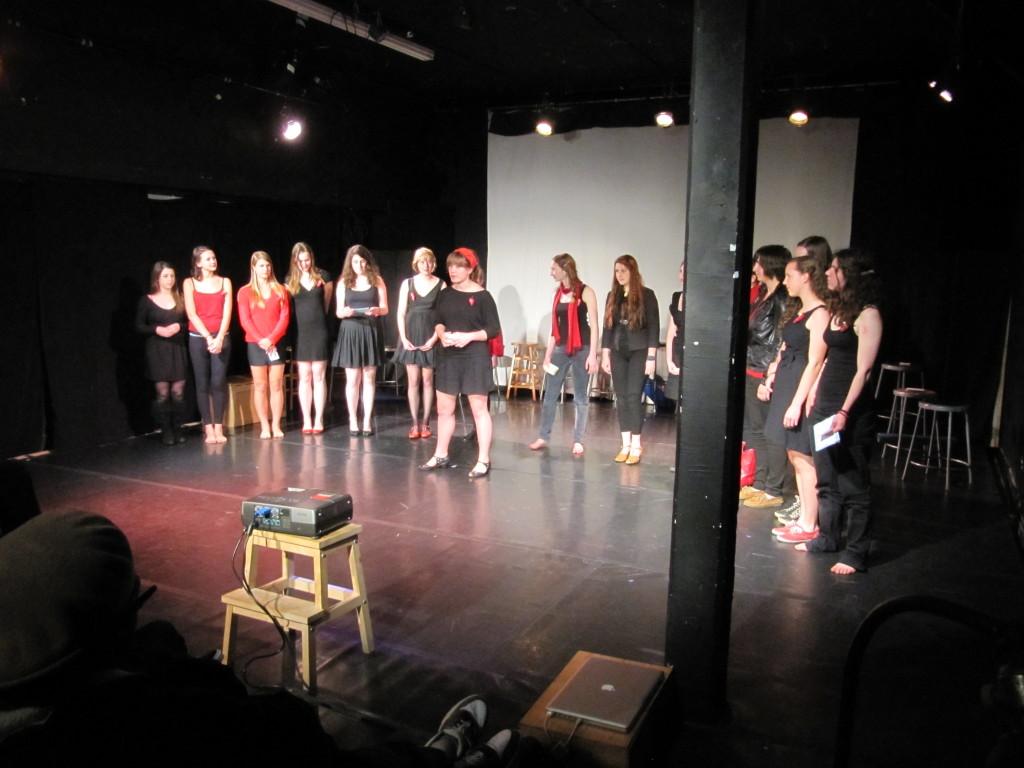
On April 10 and 11, The Garage Theater on Howard Street was absolutely packed. Urban’s Students for Women’s Equality and Rights (S.W.E.A.R.) put on Eve Ensler’s “The Vagina Monologues” for the second year in a row.
Every seat in the small black box theater, which accomodates approximately 60 people, was occupied, while others sat on pillows in front to accommodate the demand for space.
In 2004, Ensler told Mother Jones magazine that “The Vagina Monologues” and V-Day, an international day of action connected to the play and held each February, “(are) about stopping violence from outside, and . . . empowering ourselves so we know we (are not) deserving of violence.” According to The New York Times, V-Day has raised $70 million for Ensler’s organization since 1998, for the most part from productions of “The Vagina Monologues.”
Savannah Woods (’10), director and coordinator of S.W.E.A.R.’s production, explained that “remov(ing) the taboo surrounding the word vagina … allows for open conversation about womanhood that may not have otherwise been had.”
Women worldwide have responded to the subject: V-Day.org reports its celebration on Valentine’s Day is observed in 130 countries, and that in this year alone the curtain will open on 5,000 productions of the monologues.
S.W.E.A.R.’s first production of the monologues was in April 2009. Proceeds this year will go to La Casa de las Madres and the women of the Democratic Republic of Congo. La Casa De Las Madres is a shelter, counseling and advocacy organization located in the Mission District, for women and children who have experienced domestic violence. It will receive 90 percent of the proceeds, while Ensler’s V-Day campaign, which strives to end violence against women in the Congo, will receive 10 percent. This year’s performances brought $2,981.43, according to Woods, compared with $2,220.50 last year.
Given the interest among playgoers and donors not only in San Francisco but worldwide, to say that “The Vagina Monologues” has made a serious impact on the lives of women is an understatement. Ensler interviewed hundreds of women in order to write the monologues, with the intent to represent their voices. To many, the play stands as a testament to the continued challenges that women face. “Ending violence against women, both sexual and domestic, is a crucial step that must be taken in the evolution of the world,” said Woods.

